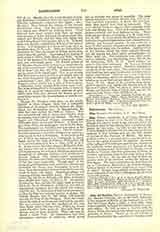
Pedro Diaz
Missionary, b. at Lupia, Diocese of Toledo, Spain, in 1546; d. in Mexico, Jan. 12, 1618

Diaz, Pedro, missionary, b. at Lupia, Diocese of Toledo, Spain, in 1546; d. in Mexico, January 12, 1618. Though but twenty years of age when he joined the Society of Jesus he had already been a teacher of philosophy for two years. In 1572 he was sent by St. Francis Borgia to Mexico with the first band of Jesuits assigned to that mission, and was the first master of novices of the Province of Mexico. His distinguished merits as a preacher and a superior were enhanced by a great reputation for holiness. As rector of the colleges of Guadalajara and Mexico, superior of the professed house, provincial, and founder of the colleges of Oaxaca and Guadalajara in Mexico, and of Merida in Yucatan, and twice procurator to Rome, he occupies a prominent place in the early history of the Jesuits in Mexico. He was also the first to start the mission work of his brethren among the Indians of New Spain. The only contribution we have from his pen is “Letteras de Missionibus per Indiam Occidentalem a Nostris de Societate Institutis per annos 1590 et 1591.” Several biographical encyclopedias confound him with Pedro Dias, a Portuguese Jesuit of the sixteenth century.
EDWARD P. SPILLANE

